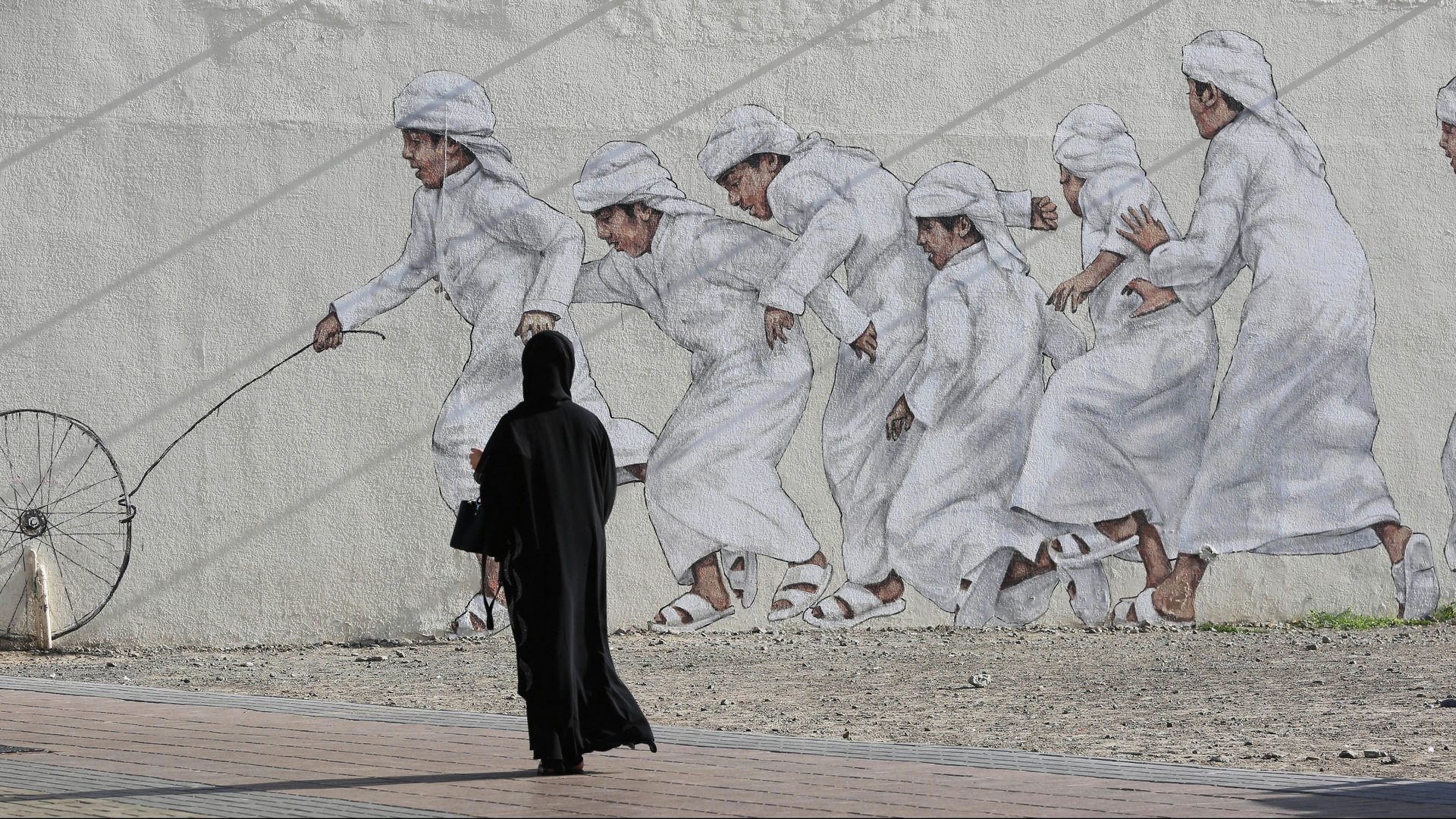The terrible optics of the UAE’s “gender balance” awards hides a more complicated story
On Sunday, the United Arab Emirates held an awards ceremony for people credited with advancing the country’s goals toward gender balance.


On Sunday, the United Arab Emirates held an awards ceremony for people credited with advancing the country’s goals toward gender balance.
The optics, as Twitter users around the world were quick to point out, were not great. The three awards—for Best Personality for Supporting Gender Balance, Best Federal Entity for Supporting Gender Balance, and the Best Initiative for Supporting Gender Balance—were all accepted by men.
If balance is the goal, women would ideally be represented among the award recipients, one could argue, at more than zero percent. But the awkward photo op of this particular event (women have been recognized in previous Gender Balance Index awards) obscures a more complex story of gender equality in the Gulf nation.
In 1975, only 1,000 women were employed in the UAE, according to a UN report. By 2015, there were 135,000 working Emirati women in the country. That year, the Gender Balance Council was formed to advocate for women’s rights in the workplace. While UAE labor law still bans women (with a few exceptions) from working from 10 pm to 7 am and from “hazardous, strenuous, or physically challenging jobs,” it does mandate equal pay.
In addition, Emirati women have more access to paid maternity leave than, say, women in the US do. Women employed in the public sector are entitled to 60 paid days off after the birth of a child. Those in the private sector get 45 days’ leave—at full pay if they’ve been with the company for at least a year, and 50% pay otherwise. Women also are entitled to two paid nursing breaks per day for 18 months after delivery.
Those are good steps, and there is still far to go. Discrimination against women is still enshrined in UAE law, according to Human Rights Watch, which noted in its most recent country report that women lack many legal rights afforded to men and gender discrimination was excluded from the country’s anti-discrimination law.
Watching men reward men for their work on women’s rights certainly has a patriarchal and self-congratulatory feel to it. But the work of moving a nation toward gender equality should not have to be borne entirely by women, either.
Nothing changes unless those in power are willing to disrupt norms in their own institutions to make way for people previously underrepresented, and for such challenges to be seen as admirable instead of suspect. An all-male winners’ list at the gender balance awards may be less a symbol of entrenched sexism than a sign that some are ready to move past it.